Long before the brilliant work coming hot off the presses this year in Inklings research, before we had Disney versions of the Narnia stories or Peter Jackson’s version of The Lord of the Rings, we have had groundbreaking work being done by a community of scholars and writers. Few books written today related to the study of C.S. Lewis, J.R.R. Tolkien, Charles Williams, Owen Barfield and the other members of The Inklings are written without referencing in some way the work done by Colin Duriez and Diana Pavlac Glyer. Both have dedicated nearly the whole of their professional careers to advancing Inklings Studies. They have aided us in developing better, deeper, and more meaningful understanding of this pivotal writers group collectively and as individuals. Colin has brought us an encyclopedic range of knowledge about the Inklings as a whole and critical understanding of Lewis and Tolkien’s friendship in particular with The C.S. Lewis Encyclopedia, J.R.R. Tolkien: The Making of a Legend, Tolkien and Lewis: The Gift of Friendship, and The Oxford Inklings. Diana has brought us the magnificent study of the Inklings as the community of writers and the dynamics of influence in her seminal work, The Company They Keep: C.S. Lewis and J.R.R. Tolkien as Writers in Community. It is difficult to imagine what Inklings studies would be like without the contributions of both these writers. I am certain, however, that had Colin and Diana not committed to the work they have done, Inklings studies would be no where near what it is today, nor would we in the broader fields of creative arts and writing have the understanding that we do of the essential nature and power of collaborative community.
It is my very great pleasure to bring you this first-of-its-kind joint interview with Colin Duriez and Diana Pavlac Glyer, critical scholars and accomplished writers who labour faithfully and share generously from their work. Their long-standing efforts have made us the richer in knowledge, understanding, and experience of creative community.
LES: Colin and Diana, you each have such unique styles of writing and approaches your subject matter. Describe for us what is distinctive about your respective work. How do you see you own work different from each other’s and from other writers in the field of Inkling studies?
CD: Wow–a big question!
When I first met Diana at the Tolkien Centenary Conference in Oxford in 1992 we both gave talks on the Inklings and, if I remember correctly, were both on a panel together. It was clear to me that we pretty much saw eye to eye on the Inklings, distinguishing the writing group from the more informal pub meetings. What she said, in hindsight, anticipated her groundbreaking book, They Company They Keep, which of course focuses upon the Inklings as a writing group. Mine lead to various articles and books which I see, looking back, particularly grappled with the questions of what held the group together as more than simply a group of C.S, Lewis’s friends, and whether there was a common world view even though the Inklings had no manifesto, no constitution, and no minute book. I was hugely encouraged by what Diana said as I had only one friend, writer David Porter, with whom I could really talk Inklings. My other elf-loving friends were interested in Lewis, or Tolkien, or very occasionally both. Like Diana, I was unhappy with Humphrey Carpenter’s classic book on the Inklings, even though, in another way, I loved it for bringing the group to life.
Broadly I have tried to write for a general reader, given the breadth of the readership of both Tolkien and Lewis. Diana, rightly, did the essential scholarly work of showing mutual influence and collaboration between the Inklings as writers. No one can now claim, like Carpenter, that there was no mutual influence (with Diana brilliantly clarifying in the process what influence means in a creative writing context), and that the Inklings were only a group of Lewis’s friends. Now, she has broadened in her forthcoming book, Bandersnatch, to reach out to a more general readership (though I must say Diana writes clearly and accessibly in The Company They Keep). There has been a tendency with many who write on the Inklings to concentrate on very detailed aspects, and perhaps to oversimplify the complexity of the people who made up the group–they were very varied, even in their Christian faith! There has been a lot of good and essential work on details of the group through the publications of The Mythopoeic Society, which unfortunately is not well known or easily available outside North America.
On other writers who have written on the Inklings: Hal Poe does a superb job of capturing the Inklings in their Oxford habitat in his photographic book with its pithy text, The Inklings of Oxford, which provides an accessible way into their world. Gareth Knight helpfully introduces the four most well-known Inklings (Lewis, Tolkien, Barfield, and Williams) through their writings. Though he doesn’t share their Christian positions, he helps his reader to look for a common world view. I’ve only yet read part of the The Fellowship, by Philip and Carol Zaleski, which introduces the Inklings through the same four, ably creating substantial mini-biographies, and reaching tentatively towards finding an important and still influential literary movement of sorts.
DPG: I’d like to start by making note of one important thing that Colin and I have in common. While there are many wonderful writers who have turned their attention to Lewis, Tolkien, Williams, and the other members of the Inklings circle, both of us have focused our attention on the group itself. The Company They Keep and The Oxford Inklings, and my new book Bandersnatch, all center on their group dynamics, their synergy and collective identity, the idea that the whole is far more than the sum of its parts.
What does each book have to offer? The Company They Keep is really the first substantial, scholarly analysis of the group, addressing the question of influence. The Oxford Inklings is a fresh, up-to-date, and balanced overview, an attempt to describe and define their essence. Bandersnatch offers something new: a look at the creative collaboration of these authors with a practical spin: how their example can help us to become more innovative in the work we do.
Colin and I both work to shed light on the Inklings as a group, and we’ve made the Inklings our life’s work. We are interested in both Tolkien and Lewis, and we do most of our work with an eye to biography rather than literary study. And it is worth noting that our books build upon the foundation of the very first book about them, Humphrey Carpenter’s The Inklings. Carpenter was a marvelous writer, really smart and engaging, and his book has held up well. It is a joy to read. But he had already written the definitive biography of Tolkien, so when he came to write The Inklings, he deliberately decided to shift the focus to Lewis, and that means his account of the group is a bit misleading. And while Carpenter captures the personalities of the members and tells their history in a really compelling way, I’m not entirely comfortable with how he characterizes the group. In a fundamental way, I don’t think he really understood them.
LES: What do you like about each other’s work?
CD: Confession: I haven’t read Diana’s Clay in the Potter’s Hand–I’d like to read it after Dorothy L. Sayer’s The Mind of the Maker. As for The Company They Keep, I love the craftswomanship of it. It is an academic study that is a very good book in its own right, one that has an important place in my collection of volumes about or by the Inklings. Diana’s powerful analysis of the complex human interaction of the writers never stays merely abstract, but is infused with a very thorough knowledge of what can be discovered of the group and its often eccentric members. While writing on the Inklings, I’m constantly searching through the index! It is the combination of generalisation and the particular that I love; I recognize the group and its members in both. It also rings true to my experience of participating in a diverse writers’ group.
DPG: Colin has the gift of synthesizing a great deal of material and making it wonderfully clear and accessible. When I see Colin’s name on a book, I know it will be trustworthy and true. His labor to produce reference books such as The Tolkien Handbook, The Inklings Handbook and The A-Z of C. S. Lewis means that he’s got a handle on the details. But he also has been working in this field long enough to grasp the big picture. He’s a great writer; I am definitely a fan.
LES: What keeps you interested in the Inklings and why have you devoted so much of your life to writing about them?
CD: It started with Lewis. My interest in Lewis began when, in one of my classes at Grammar school (high school) we read aloud and discussed his Mere Christianity. As well as relishing the content of the book as a Christian with burgeoning literary and philosophical interests, I loved his combination of reason and imagination. How his illustrations and images stuck! As with any new writer I discovered who grabbed me, I started reading all his other books — not realizing how many there were. Surprised by Joy helped me understand why I loved certain books so much, and introduced me to the name of his friend, Tolkien. I spotted The Hobbit in a bookshop and found The Lord of the Rings in a British Council library in Istanbul (where I had gone to study). Some American friends I met in that historic city lent me books about Charles Williams and a copy of Essays Presented to Charles Williams. My reading list got bigger and bigger. It took me longer to find any of Owen Barfield’s books. I started giving talks and writing on Lewis and Tolkien (my first Inklings-related published article was on Tolkien). The combination of literary and philosophical that I discovered in the Inklings, combined with the fact that they were fascinating characters, I found (and still find) inexhaustible. This, I decided, was because their focus was on distant horizons — beyond “the walls of the world” — rather than on themselves. This somehow led them to value friendship (because of them, I found myself reading Montaigne’s essay on friendship long before I read The Four Loves). Also their view of the world helped me to be grounded as an adult in my Christian faith.
DPG: When I was in college, a professor challenged me to choose a life author, to devote myself to studying one author and then really getting to know them, deeply, intimately, over the long haul.
I chose C. S. Lewis because I resonated with his mystical and sacramental experience of God, and because I was in awe of the way that both his intellect and his imagination were so fully alive.
As a teenager, I thought that studying Lewis, reading the work of his friends and colleagues, and devoting my life to reading the books he read and the works he inspired would open an amazing world to me. And it has.
LES: How you keep finding fresh perspectives on the topic that you each know so well?
DPG: Albert Einstein once claimed, “I have no special talent. I am only passionately curious.” I can relate to that; perhaps all writers can. We are curious, we ask questions, we read and research and connect with others who know more than we do. Then we fumble to record the answers the best we can, and we discover that we understand things better because we try to write about them with candor and clarity. Questions just keep bubbling up all the time.
The more I learn, the more I long to understand.
CD: As I’ve read the Inklings, studies and books about them, talked with whoever I could find about them (including my friend, the late David Porter), I experienced the group as real human beings, with individual complexity mingled with the complexity of the group, I’ve found them inexhaustible. As my own thinking about, say, reason, imagination, myth and incarnation, has developed, so too the Inklings have unfolded before me. It has not made me an Inklings nerd, or a Lewis or Tolkien one. I’m interested in many other writers and subjects (I wrote a book about Harry Potter, and another book about the year AD 33, for instance), but my interest in the Inklings, particularly Lewis, has not flagged or hit the bottom of a dig.
LES: What makes the Inklings so fascinating and why do you think we as readers are drawn back to them again and again, even though by now we have such a wealth of knowledge about them?
DPG: The Inklings seem like such ordinary guys: wearing tweed, smoking pipes, drinking beer. They taught classes, they read books, they went for walks across the countryside. They were great friends. And there’s such incredible diversity of interest, styles, genres, and specialties in the group. It seems so simple—so basic– on the surface, and yet somehow, step by small step, they encouraged and challenged each other to accomplish really great and lasting things. It raises such tantalizing questions: How did that work? What did they talk about? And how might my life be better if I followed their example?
CD: In short,
somehow in their thinking and imaginations, they made contact with what is real (that is, what God has created and stamped with himself),
despite their imperfections and oddities (wait until you read Grevel Lindop’s forthcoming biography of Charles Williams!). The first book I read about Lewis, and one of the earliest and best, was Clyde S. Kilby’s The Christian World of C.S. Lewis. His title really captured Lewis for me, and I think there is equally a world of the Inklings. Just as we can explore Narnia and Middle-earth, there is a way-of-seeing amongst the Inklings (even they they don’t see identically) that is attractive and has a kind of homeliness, despite the choking tobacco smoke and half empty glasses on table surfaces swimming with ale and cider. Their way-of-seeing is often challenging to us as moderns, because in their own ways they are intent on undeceiving us (to use a term of Lewis’s). They see us as needing a perspective from outside of ourselves to see both the strengths and weaknesses of our own period. Lewis put it bluntly when he wrote: “It is a good rule, after reading a new book, never to allow yourself another new one till you have read an old one in between. If that is too much for you, you should at least read one old one to every three new ones.”
LES: What works – including your own, of course – would you recommend to someone new to Inkling studies just getting acquainted with the field? What would you suggest for someone further along in their reading of the subject?
CD: New to Inklings studies:
The Oxford Inklings: Colin Duriez
Bandersnatch: Diana Glyer
The Inklings: Humphrey Carpenter
Tolkien and C.S. Lewis: The Gift of Friendship: Colin Duriez
More advanced:
The Company They Keep: Diana Glyer
The Fellowship: Philip and Carol Zaleski
DPG: If you are a rank beginner, just learning about these authors, I’d say start with Humphrey Carpenter’s biography of Tolkien: it’s so well-written and gives such a solid perspective of these authors and this time period. From there, I’d say go to a group biography, either Colin’s The Oxford Inklings (for a really good overview) or my new book Bandersnatch (for more of an inside look at the dynamics of their creative process). I’d recommend reading their letters: Tolkien’s letters are wonderful, and Paul Ford has done a great job of presented a choice selection of Lewis’s letters. Other great sources are Brothers and Friends: The Diaries of Major Warren Hamilton Lewis and Owen Barfield on C. S. Lewis. As you can see, I’m a great believer in going back to the primary sources, reading them for your self, and drawing your own conclusions. Those ready to start studying Lewis in earnest will find two books indispensable: Walter Hooper’s C. S. Lewis Companion and Guide and Janine Goffar’s C. S. Lewis Index.
For those further along, I’d recommend that you make it your practice to read one book by Lewis or Tolkien for every book you read about them. And as you dig even deeper into their worlds, do all you can to read what the Inklings read: Beowulf, George Macdonald, Norse Mythology, Boethius, Dante, even popular fiction like John Buchan, H. Rider Haggard, and Jules Verne!
And when it comes to cultivating a healthy perspective on reading, I love C. S. Lewis’s essay “On the Reading of Old Books.” It is published in several of his collections, or you can read it here: http://www.theelliots.org/Soapbox2008/OntheReadingofOldBooks.pdf
LES: Diana, would you share something you learned through writing The Company They Keep – something perhaps that caught you unawares or by surprise? And as writers, what was a lesson you learned from your experience in writing these two books that you would want to share with other writers?
DPG: I feel that everything I learned about the Inklings by reading their letters and studying their manuscripts was a surprise and delight. I loved discovering how rough and ragged their rough drafts were, how hard they struggled to tell their stories, how often they shared drafts with each other (“What do you think of this?” “Is this any good?”), and how much detailed feedback they gave each other every step of the way. The threads of influence are everywhere: Lewis rewriting several stanzas of a poem by Tolkien; Lewis incorporating a comment by Havard into a series of sonnets; Barfield writing a play based on a suggestion by Lewis; Tolkien creating a fictional writing group called The Notion Club, based on the Inklings. I love exploring these creative connections.
LES: Colin, would you do likewise regarding The Oxford Inklings?
CD: I suspected that a theoretical treatment of the group in all its complexity as a conversation group as well as a writing group is very difficult to achieve without putting it into some kind of box (perhaps concluding (a) that it was essentially only a group of friends, with several of the group – usually Tolkien, Lewis, Barfield and Williams – being singled out for special treatment, or (b) that it had an implicit but definite manifesto or a comprehensive intellectual worldview). I discovered that the group could be approached biographically in a narrative, but without ignoring the thinking of individuals in it and their relationships, and taking into account imaginative, creative accomplishments (poetry, novels, plays, historical and philological criticism, mythopoeic writing). I think that The Oxford Inklings did in fact succeed in capturing something of the unity in diversity of the range of members, and not only in the famous four. Also, it captured a quality or spirit in the Inklings made up of a view of the world that had strong imaginative and well as theoretical dimensions that did not have to be made fully explicit. That this approach worked pleased me greatly, and perhaps can give readers a sense of pleasure.
LES: Tell us about what are you working on next – what is up next for each of you?
CD: My current writing project has been delayed somewhat with problems moving house. It is a biography of Dorothy L. Sayers. I wanted a break from writing about the Inklings, but, in fact, it is hard to avoid her friendships with Charles Williams and C.S. Lewis!
DPG: I have been working for some time to edit and annotate a small collection of letters written by Warren Lewis, C. S. Lewis’s brother. I hope to publish them in the next year or two. They offer a perspective on Warnie that we really haven’t seen before, highlighting his kindness and his wisdom, detailing his devotional life, and describing the rhythms of his daily life at the Kilns. When I shared these letters with Walter Hooper, he said that they will rehabilitate our understanding of Warren Lewis. That is my hope and prayer.
Next year, I’ll be on sabbatical, and I’ll be devoting my time to finishing the first draft of a book on Dante. In 365 short chapters, I hope to guide readers step-by-step and page-by-page on a pilgrimage through Dante’s Divine Comedy. The emphasis will be on spiritual formation, somewhat in the tradition of Richard Foster and Dallas Willard. I have found so much in Dante that has nourished my soul. I’d like to do what I can to make this daunting classic more accessible to others.
And after that? I hope to return to a raggedy draft of a new book on Lewis. Biographical, mostly. But—well, you’ll have to wait and see.
Colin Duriez’s fine new books Bedeviled: Lewis, Tolkien and the Shadow of Evil and The Oxford Inklings are available now and make for marvelous reading!
Diana Pavlac Glyer’s newest book – Bandersnatch: C.S Lewis, J.R. R. Tolkien and the Creative Collaboration of the Inklings is scheduled for release December 1, 2015 and is available for pre-order now.
The images of Colin Duriez and Diana Glyer were made when we were in Oxford
at the C.S. Lewis Foundation’s triennial Summer Institute called Oxbridge.
These images are copyrighted material (c) Lancia E. Smith.
If you wish to use them please feel free to contact me directly using the contact form of this website.
I will be delighted to share them with you.
If you would like to see more about Oxbridge, here is a good place to start – Oxbridge 2014 Slideshow.
Many blessings to you!
Lancia E. Smith is an author, photographer, teacher, and publisher. She is the founder and Executive Director of Cultivating Oaks Press, Cultivating Magazine, and its fellowship of writers and makers, The Maker’s Project. She has been honoured to serve in executive management, church leadership, school boards, and Art & Faith organizations throughout her career.
Now empty-nesters, Lancia & her husband Peter make their home in the Black Forest of Colorado, keeping company with 200 Ponderosa Pine trees, a herd of mule deer, two beautiful black cats, a wild fox, and an ever expanding library. Lancia loves land reclamation, website and print design, beautiful typography, road trips, being read aloud to by Peter, and cherishes the works of C.S. Lewis, J.R.R. Tolkien, and George MacDonald. She lives with daily wonder of the mercies of the Triune God and in constant gratitude for the beloved company of Cultivators.
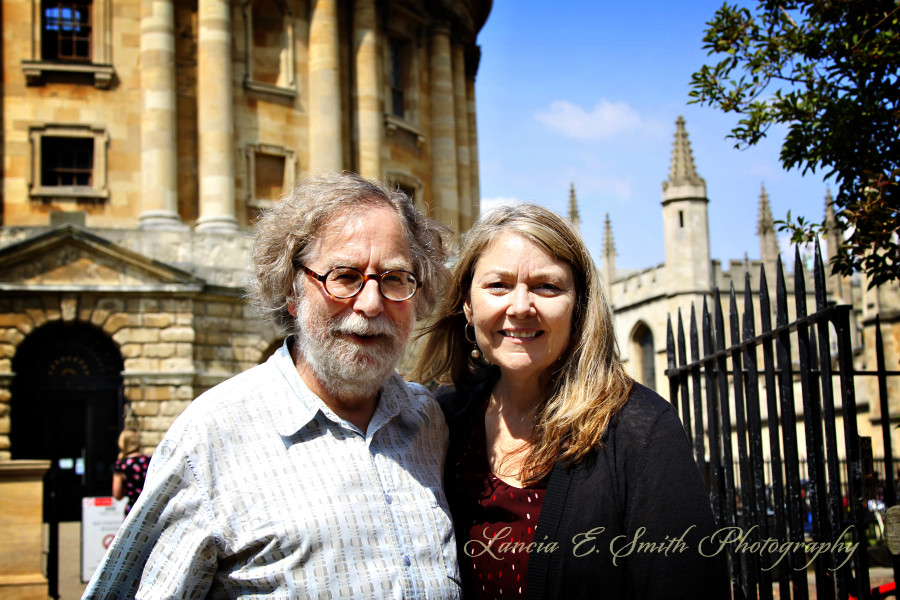
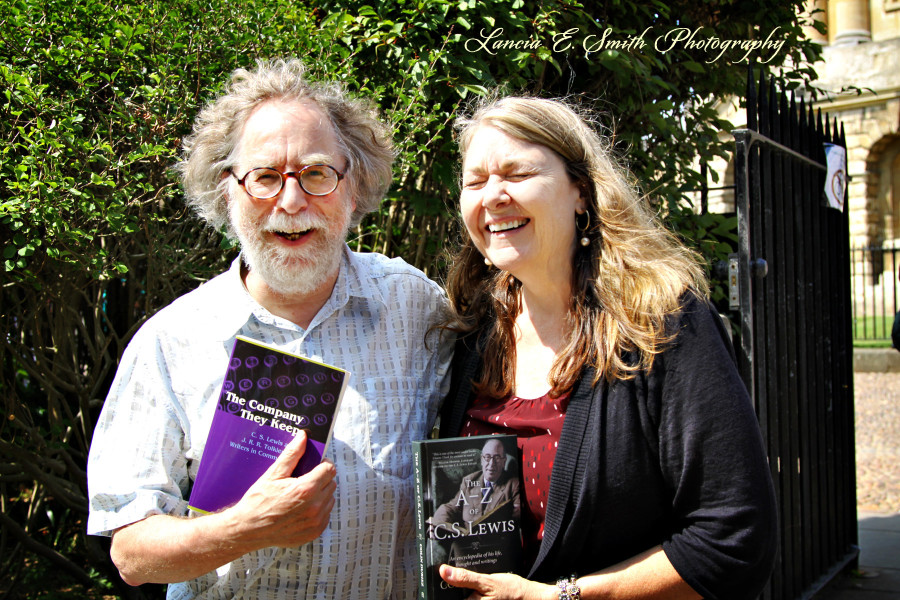
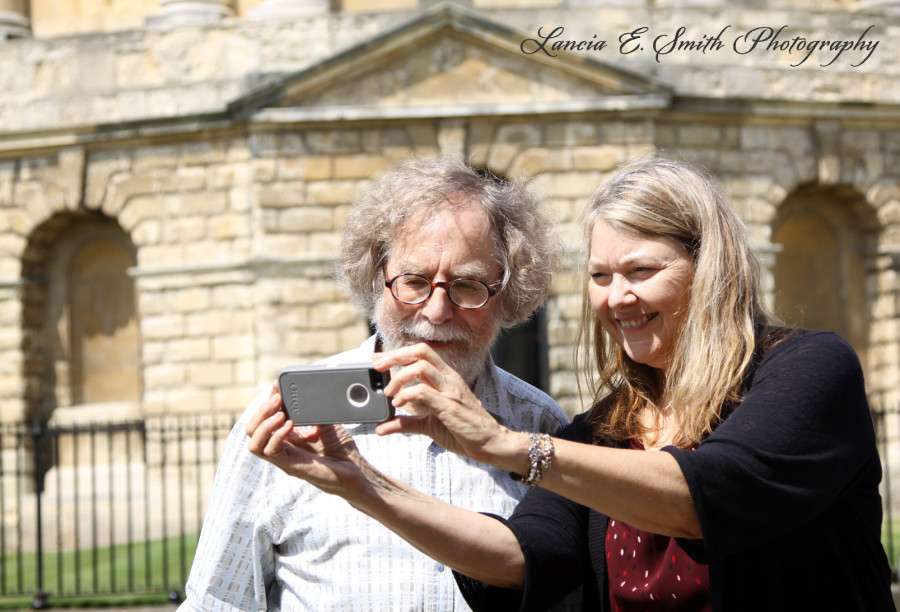
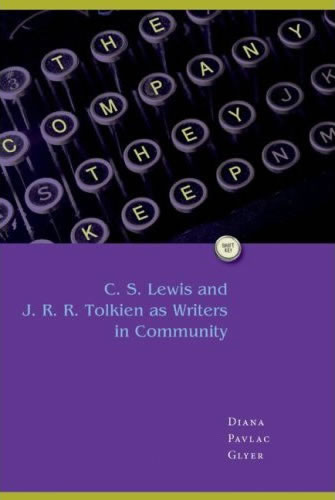
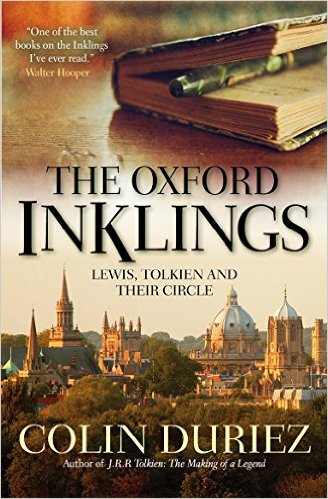
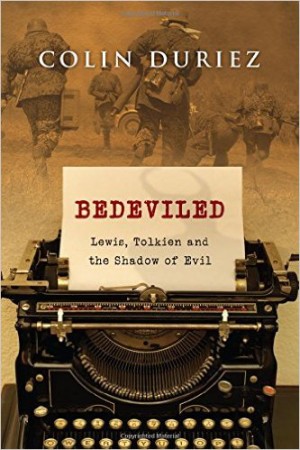


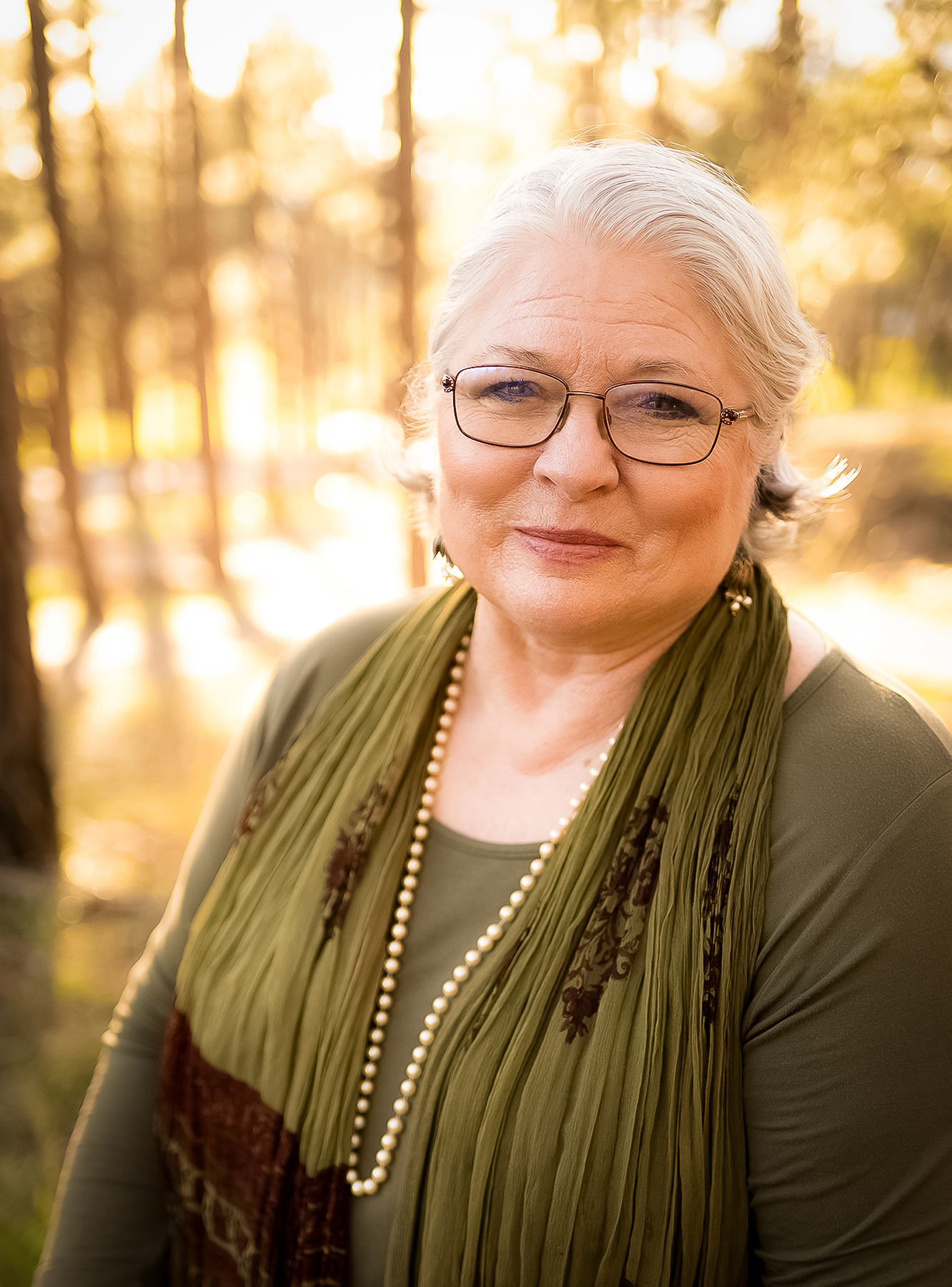
Lancia – I thoroughly enjoyed ( and appreciated ) this interview: all that you asked and all that Colin and Diana had to share. It was exciting!
There is so much to be culled from a vast array of thoughts. I am especially interested in Diana’s delving into the letters of Warnie. It was not intentional on my part but a delightful encounter to be reading “Brothers and Friends” when I was headed to the Kilns study week in 2001 and then ended up sleeping in what had been Warnie’s bedroom. I continued reading that book as I stayed on in Oxford and often was in settings reading what he had been writing when “living in them”. It has become a most nostalgic book for me – and Warnie does deserve the attention that Diana will eloquently give to him.
[…] Inklings news: Diana Glyer and Colin Duriez, also a well-known scholar, were recently interviewed about their work on the Inklings by Lancia E. Smith. (With terrific photos of them, too.) Glyer and Duriez are going to be featured […]
[…] be found on Christian radio, and a number of smaller winter events for our members. Inklings expert Diana Glyer will be visiting us in April and I’m excited about that; she’ll be drawing from her new […]
[…] Colin Duriez, Andrew Lazo, Randy Alcorn, Lyle Dorsett, and Alister McGrath described how Lewis related to both […]
Lynn, I think you will find a great deal of interest in Diana’s on-going work on Warnie and I look forward to seeing more of her work in print about him in the next few years. She has a better understanding of Warnie than almost anyone alive, except, of course, for Doug Gresham. What a remarkable experience to have stayed in Warnie’s room at The Kilns!
[…] the help and encouragement we gave each other and the inspiration from Diana Pavlac Glyer’s Bandersnatch, I and my cousin, Caryssa, decided to start a group for young writers in our […]